- Home
- Nancy Mitford
The Penguin Complete Novels of Nancy Mitford Page 4
The Penguin Complete Novels of Nancy Mitford Read online
Page 4
The departure of the only conscious member of his audience seemed now to spur him to greater vocal efforts and whole sentences could be heard at a time.
‘I am convinced, m’lords, that this danger is very real. It is a very real danger. What did Scipio Africanus say?’ Here he began struggling with the notes he held in his hand, but was evidently unable to find what Scipio Africanus had said. The sleeper on the divan, subconsciously aware that something was expected of him, turned rather heavily and groaned out, ‘’Ear! ’ear!’
‘M’lords, it has been said in another place,’ continued the speaker in no way put out by this slight setback, ‘that it is a very real danger. The Dukeries, m’lords, with all due respect to the noble duke behind me, are not to be confounded with the Fisheries. As my noble friend has so aptly remarked, it is anomalous to pretend that they are analogous …’
Another rather younger peer now came in, sat down opposite the divan and began to read some letters.
‘Enfin, on vient au secours du pauvre vieux.’
‘Mais non, il n’y fait même pas attention.’
‘Mon Dieu! Eh bien, voilà. C’est le flegme Britannique. Que voulez-vous? Dites donc, si on partait? Ce n’est pas follement gai ici.’
‘Est-ce qu’on ôse?’
‘Allons. Filons vite. Courage, mon ami.’
The Frenchmen got up and left the gallery.
At last Lord Craigdalloch made his peroration, which was quite inaudible, and sat down. The man who was reading letters sprang to his feet as though fearful of interruption (a danger, however, which hardly seemed pressing as the house was empty except for the now prostrated Craigdalloch and their sleeping compeer on the sofa), and spoke rapidly and audibly:
‘M’lords, I have been asked to reply to the noble lord and I wish at the outset to express the thanks of the Government to the noble lord for so readily agreeing last May to postpone his Question, in view of the position as it then stood. At that time there was some uncertainty …’
Here Lady Craigdalloch leant over the rail of the Peeresses’ Gallery and by a series of signals gave the Monteaths to understand that she was ready to go and would meet them outside.
When, after losing their way once or twice, they at last reached the Prince’s Chamber, they found her waiting there for them. A tall commanding woman with white hair and an Edwardian aspect, she had, in the days when big pale faces and Grecian features were admired to the exclusion of everything else, been considered a beauty. She had still considerable remains of looks and the unmistakable manner of one who has been courted in youth and flattered in middle-age.
‘Dear Sally,’ she said, embracing her niece rather voluminously, ‘I knew you would like to hear your uncle’s speech. It went off very well, didn’t it? Always such an anxiety to the dear thing. How well you are looking, Sally. Where did you get so wonderfully sunburnt?’
‘At Elizabeth Arden’s, Aunt Madge.’
Lady Craigdalloch inwardly supposed that this must be one of Walter’s Bright Young but Undesirable friends that she was always hearing so much about from Sally’s mother. The creature probably has a villa in the South of France – so much the better, those sort of people are not wanted in England, where they merely annoy their elders and breed Socialism. In any case, she never understood this craving of the younger generation for a hideous brick-coloured complexion. If she had guessed for a moment that Sally stained hers every morning with stuff out of a bottle she would have thought her niece frankly mad.
‘Craig will join us in a moment. He wishes us to begin tea without him.’ She led the way down long, draughty, Gothic corridors to the tea-room, which, in contrast to other portions of the House, presented a scene of tempestuous gaiety. Several of the peers seated at the rather intime little tables were considerably under seventy, and one or two had relations and female friends with them whom they were entertaining with jokes and witticisms of the most abandoned description. Two bishops and some of their girl friends were fairly rollicking over a pot of tea, while the old man with crutches was being jocularly accused by the Lord Chancellor of having wiped his beard on the table-cloth, an allegation which he could hardly refute, having been caught by that dignitary in the very act. Altogether there was a spirit of goodwill and friendly banter which seemed more or less lacking elsewhere in the building.
While Walter and Sally were eating the fascinating mixed biscuits and strong tea which the nation, through the medium of Richard Coeur de Maison Lyons, provides at a slight profit for the sustenance of its administrators and their guests, Lady Craigdalloch explained in what their duties at Dalloch Castle would consist.
‘You will find everything running very smoothly, I think. The servants have all been there for years and you’ll have no trouble at all with them. You will, of course, give any orders for the comfort of the guests, such as, for instance, how many picnic luncheons will be required for the guns, and so on. Then, if you would meet new arrivals in the hall and show them their rooms, that sort of thing makes people feel so much more at home than if they arrive and find no host or hostess.’
‘When would you like us to go up there?’ asked Sally.
‘Let me think. The first guests, of course, arrive on the tenth. Could you go up about the eighth? You’ll find General Murgatroyd. He’s there now, dear thing, fishing.’
‘Is it a big party for the twelfth?’
‘I think I can tell you exactly who will be there. Lord and Lady Prague – he is a great friend of your papa, Sally; very deaf, poor dear, but an extremely good shot. He married her en secondes noces some years ago. She was Florence Graiday. She will be a great help to you, I think, a wonderfully charming woman and so artistic. They will probably stay quite a month. They always do every year. Then a delightful young couple, the Chadlingtons. Brenda Chadlington is the daughter of a very old friend of mine. She is a most beautiful creature. The other two guns are Admiral Wenceslaus, a dear thing with only one eye; and Mr Buggins, who is, of course, secretary of the Nelson Club, a very cultured man. His wife, poor woman, is shut up, has been quite mad for years.’
‘Is General Murgatroyd married?’ asked Sally rather nervously. She felt that all these women might prove to be very alarming.
‘No, dear, he is not. That is to say, he was married but unfortunately, he was obliged to divorce his wife. None of us was surprised. She was a girl from the Baker Street Bazaar, you know. She got a hold over him somehow and made him marry her. But it all happened years ago – thirty years at least, I suppose. Here comes your Uncle Craig.’
Sally kissed her uncle, who seemed genuinely pleased to see her.
‘We heard your speech, Uncle Craig,’ she lied, ‘from the Strangers’ Gallery. It was most interesting.’
‘Glad you think so, my dear. One has one’s duty, you know; born into a certain position and so forth. It’s no use pretending that one enjoys coming here, or that it will be very pleasant going off to New South Rhodesia just when the moor has never been better. Still, as my poor father used to say, one’s not only put here for enjoyment. All the same,’ he added, brightening somewhat, ‘Gillibrough tells me I may get the chance of shooting a lion or two and possibly some hartebeest in Rhodesia. Well, Walter, what d’you think of this place? Never been here before, eh? Finest legislative assembly in the world, you know, nothing to touch it anywhere. Made England what she is today – the House of Lords. The work that goes on here, you wouldn’t believe it. There’s no place like it for work, and all unpaid. And then the Socialists pretend we don’t do our bit. I’ll tell you one thing, Walter: the reform of the House of Lords will be the downfall of England.’ He bristled at the idea, then continued more gently, ‘So you two are going up to Dalloch to look after our guests for us, eh? Very kind of you, I think. Now, have you any friends of your own you’d like to ask for the shooting, eh?’
‘We’d rather like to ask someone called Albert Gates, if
we may, but he doesn’t shoot, I’m afraid.’
‘Doesn’t shoot? And Walter doesn’t shoot either? I can’t think what all these young men are coming to. What does he do, then?’
‘He studies painting, Uncle Craig.’
‘An artist, is he? Well, well, how did you get to know him, then? As a matter of fact, now I come to think of it, I once knew an artist myself called Leighton – Lord Leighton. Not a bad fellow at all, really quite a decent sort of chap considering. If your friend paints he’ll like being up at Dalloch: the views are really superb, wonderful colour effects, you know.’
‘The old parts of the house are very paintable too,’ said Lady Craigdalloch. ‘Dear Mr Buggins always does some charming water-colour sketches on non-shooting days.’
‘See that youngish man who’s just come in, Sally?’ said her uncle suddenly.
Sally saw a man of unbelievable age creeping towards them, his limbs positively shaking with palsy.
‘That’s Prague, he’s going to be at Dalloch with you. You’d better meet him. Here, Prague! (He’s very deaf so speak up, won’t you?) Prague, this is my niece, Mrs Monteath. She’s going to be at Dalloch.’
Lord Prague gave her a gouty hand and said in a quavering voice:
‘You must be Johnnie’s daughter, I suppose. Now, how is Johnnie?’
‘Not very well,’ screamed Sally. ‘He’s doing a cure at Baden.’
‘I’m very sorry to hear it. A young man like Johnnie should not be doing cures yet. Why, it’s only yesterday he was my fag at Eton. Cure be damned! Little Johnnie. Yes, he was Captain of the Boats – only yesterday! Well, see you in Scotland, I hope. I must go now. They may divide on this. Coming, Craig?’
Walter and Sally, on their return home, found Albert talking to Jane Dacre, Sally’s greatest and, indeed, only woman friend.
‘Jane, dear, how nice to see you! Did you know Albert before? Anyhow, I’m glad to see he gave you a cocktail.’
‘No, we’ve never met before, and in point of fact, I gave him one. He didn’t seem to know where the drinks are kept.’
‘I have been telling Miss Dacre about our party last night,’ said Albert. ‘What have you two been doing this afternoon?’
‘We have been visiting the greatest legislative assembly in the world, namely, the House of Lords, and one of the legislators took such a fancy to us that he has lent us a castle and a grouse moor in Scotland for two months. And this is a perfectly true fact, believe me or not as you like, but please both come and stay and bring your guns.’
Sally explained the circumstances.
‘You must both come and help us with these Pragues and Murgatroyds and people. There’s an admiral with one eye and a man with a lunatic wife, but he’s not bringing her because she’s in a loony bin. So do come, angels, won’t you?’
Albert accepted without any hesitation.
‘I have never been to Scotland,’ he said, ‘which, for an earnest student of the Victorian era, is a very serious admission. I am happy to think that I shall soon see with my own eyes and in such charming company, that scenery of bens and braes which is so impregnated with the nineteenth century. It is also a unique chance, as I am told that no cultured people ever go there now, so much is it démodé.’
‘I’d love to come, too,’ said Jane, ‘if I may let you know for certain in the morning. I shall have to ask the family – but I expect they’ll be delighted. There is something so very respectable about Scotland.’
5
Jane Dacre sat in the restaurant car of the Scotch express about a month later. She had accepted Sally’s invitation with great pleasure and her family’s full consent, and was much looking forward to the visit, partly because she would thus avoid seeing her parents for a whole month, but chiefly because she was devoted to Walter and Sally, and rather in love with Albert.
Jane was a very ordinary sort of girl, but her character, as is so often the case with women, manifested itself by a series of contradictions and was understood by nobody. Thought by some to be exceptionally stupid, and by others brilliantly clever, she was in reality neither. She had certain talents which she was far too lazy to develop, and a sort of feminine astuteness that prevented her from saying silly things. Like many women she had taste without much intellect, her brain was like a mirror, reflecting the thoughts and ideas of her more intelligent friends and the books that she read. Although she was able to perceive originality in others, she was herself completely unoriginal. She had, however, a sense of humour, and except for a certain bitterness with which, for no apparent reason, she regarded her mother and father, the temperament of an angel.
Her attitude towards her parents was, indeed, very curious. She always spoke of them as though they were aged half-wits with criminal tendencies, whose one wish was to render her life miserable. Those of her friends who had met them never could account for this. They were charming, rather cultured people, obviously devoted to their only child, and Jane when she was actually with them seemed to return their devotion. That she was a great trial to them there could be no doubt. Men fell easily in love with her, and she was usually having an affair with some really unsuitable person. As she was most indiscreet she had acquired, among people of her parents’ generation, a very bad reputation, which was hardly deserved. Up to the present she had not married, having a sort of vague idea in her head that she wished to be the wife of a genius. In the same way that some girls will not marry for love alone but must have money too, only allowing themselves to fall in love with a millionaire, so Jane thought that she could never be happy except with a really clever man; she had little intellect of her own, and needed the constant stimulus of an intellectual companion.
She intended to marry when and only when she had found the ideal person, but she was in no hurry. The idea rather bored her, and the example of her married friends (except for Walter and Sally) was, to say the least of it, unpromising.
Meanwhile, she fell in love right and left, and had many violent but short-lived love affairs, in the course of which she burnt her own fingers comparatively seldom.
The train was full of sportsmen, their wives and dogs, going North. The most depressing sight in the world, thought Jane, is a married couple travelling. The horror of it. Not only must they sleep, eat, walk, drive and go to the theatre together all their lives, but they cannot escape even in the train. It brings home to one what marriage really means more than anything else, except perhaps seeing a married couple at the bridge table. What is the terrifying chain which binds these wretched people together so inevitably? Love? Hardly, or they would look happier. Intellectual companionship? No, that certainly not; the misery on their faces is only exceeded by the boredom. Habit and convention, no doubt, aided by the natural slavishness of women. Probably they are too stupid to realize their own unhappiness. They all look terribly, terribly stupid.
As Jane glanced around, her attention was particularly attracted by one couple who seemed rather different from the rest, and yet in a way typical of them all.
The husband was an example of sporting Englishman to be seen by the dozen on every racecourse and with whom the Embassy is nightly packed. He was tall, rather burly, with a phenomenally small head, mouse-coloured hair and reddish moustache. Although possessing almost classical features he was as ugly an object as could be imagined.
His wife was more unusual looking. She was immensely long and thin, so that she appeared, as it were, out of a drawing, like an object seen in a distorting mirror. Her face, terribly thin and haggard, was completely dominated by an enormously long thin nose which turned up slightly at the very end; her large dark eyes were set close together and looked short-sighted. Her mouth was simply a red line, showing up startlingly on her dead white skin with green shadows. Jane thought that she had never seen anyone look so much like an overbred horse. She even ate like one, appearing to sniff every mouthful cautiously before she allowed herself to nibble at it, as t
hough she might at any moment shy away from the table. Her husband behaved to her just like a groom with a nervous mare. Jane felt that he must have had difficulty in accustoming her to being handled.
She was well-dressed in an English sort of way; her tweeds were perfectly cut, and everything she wore was obviously expensive. Beautiful rings gave the uncomfortable impression of being too big for her fingers, which were abnormally thin and nervous. Her pearls were real. She wore a regimental badge of diamonds and rubies on a thick crêpe-de-chine jumper. While lacking any real chic, she gave an impression of genuineness and worth so unusual as to be rather pleasant. The word ‘bogus’ could under no circumstances have applied to her.
Jane, who was clever with her own clothes, felt annoyed with the long thin woman who, she thought, might have made more of her appearance without in any way detracting from its originality.
‘And is it necessary to look as bored as that?’ Jane wondered. Of course, the husband was most uninspiring, but still she might look out of the window sometimes, or at her fellow-passengers instead of staring into space in that almost loopy way. Perhaps she had a hidden life of her own into which she could retire at will, or possibly she was in fact as stupid as she looked. Jane hoped for her sake that this was so.
At last she turned to her husband and said something. Only her lips moved, the expression of her face was unchanged. He nodded. Presently he gave her a cigarette and she began to blow the smoke through her nostrils like a horse in the cold weather.
Jane paid her bill and wandered back to her third-class sleeper. When she reached it she stood for a few moments in the corridor looking out of the windows at sunny fields with immense shadows of trees and hedges lying across them. The setting sun made a yellow mist over everything.

 The Blessing
The Blessing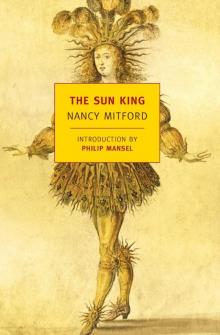 The Sun King
The Sun King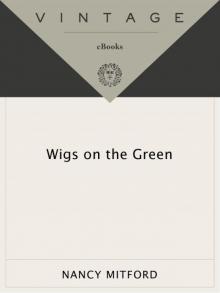 Wigs on the Green
Wigs on the Green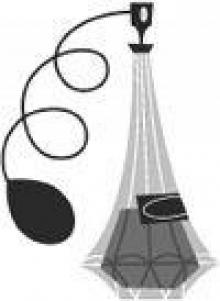 Love in a Cold Climate
Love in a Cold Climate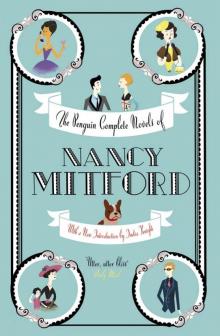 The Penguin Complete Novels of Nancy Mitford
The Penguin Complete Novels of Nancy Mitford The Pursuit of Love
The Pursuit of Love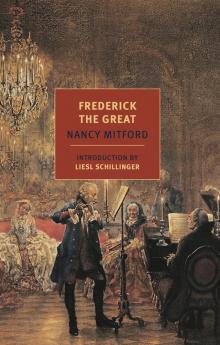 Frederick the Great
Frederick the Great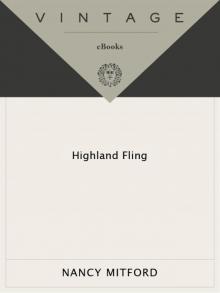 Highland Fling
Highland Fling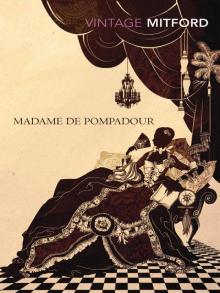 Madame de Pompadour
Madame de Pompadour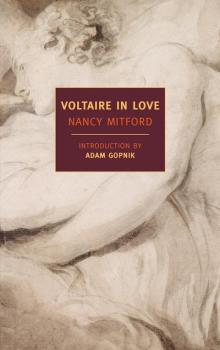 Voltaire in Love
Voltaire in Love Don't Tell Alfred
Don't Tell Alfred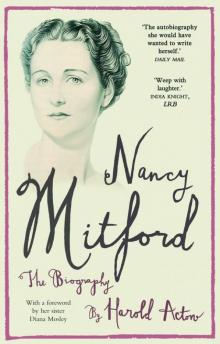 Nancy Mitford
Nancy Mitford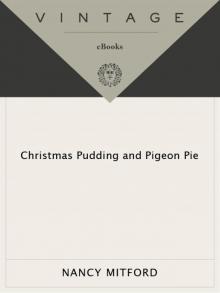 Christmas Pudding and Pigeon Pie
Christmas Pudding and Pigeon Pie